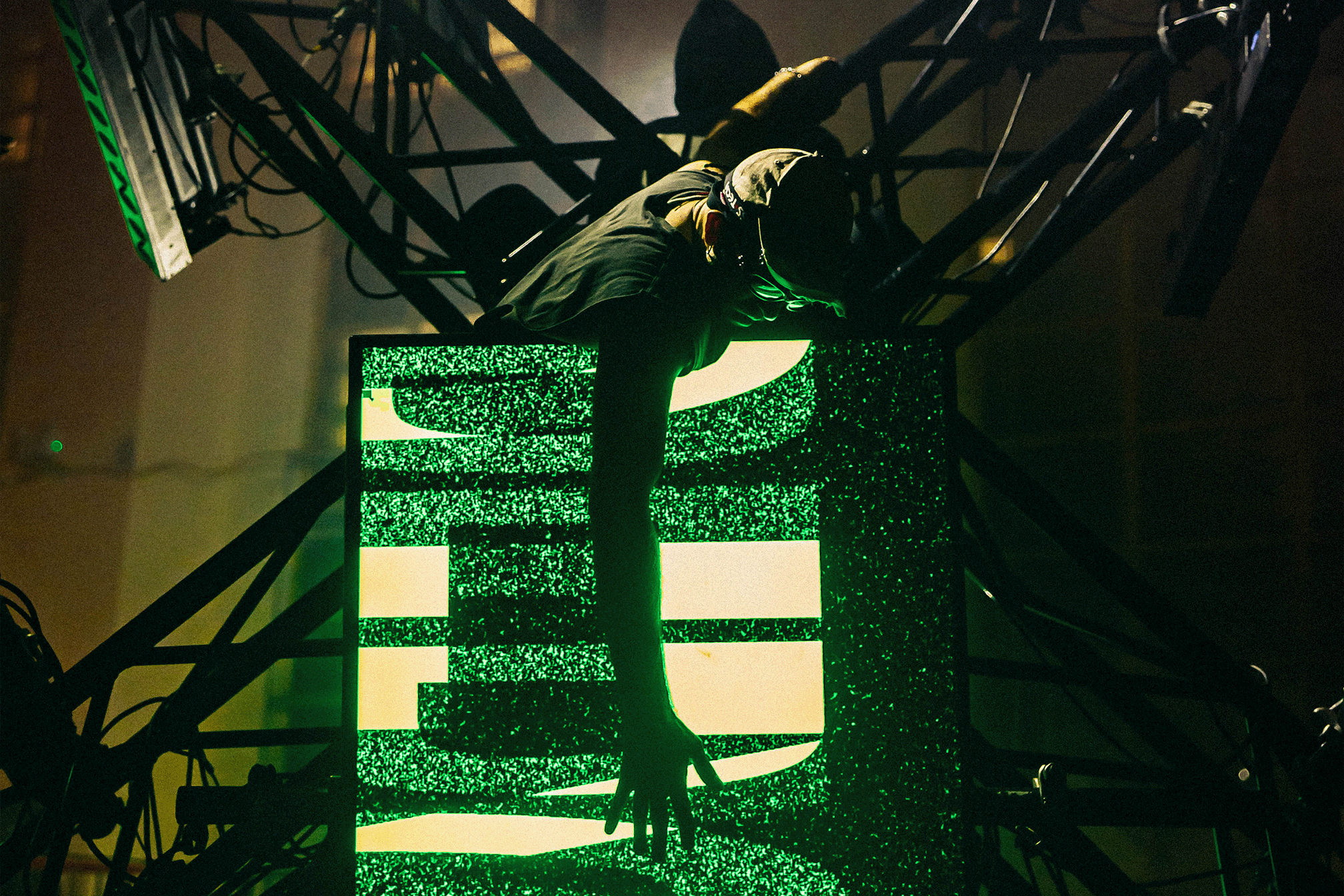 SCENE REPORTS
SCENE REPORTS
Trust transformed, the cultural reckoning of Soft Centre
In a pacifistic festival world, Soft Centre's 2025 edition emerged with a challenge.
festival (noun)
a time of celebration marked by special observances
‘Festival season’, within Australia at least, has become synonymous with warmer months and the revelry they make possible. Longer days, better weather, and, generally speaking, fewer worries.
Although not immune to their own risks, whether it be the changing tide of trends or increased costs leading to postponement or cancellation, music festivals have become somewhat of a given in the world’s musical landscape. So much so that some of the world’s largest festival brands not only do events in their home country, but spread their influence across the globe, following a trail of money made available by the trust they’ve garnered.
That trust might be for many reasons, whether an international festival or one done at home, but it usually falls into a variety of categories. The decor might be incredible, stage design, sound, “vibe”, the site, crowd and last but certainly not least, the music itself.
Trust can be interpreted in many ways, but when it comes to music festivals, that trust is almost always in the pursuit of a good, meaningful time. Knowing where we’re going, what we’re in for and how it’s set to make us feel means that as a punter, you don’t have to worry. A festival, and the price of admission, becomes an opportunity to leave something entirely to someone else.
But what if trust wasn’t about leaving something entirely to someone else, but instead, trusting that you had a more meaningful part to play?
What if the festival, as we know it, an opportunity to ‘switch off’ and let someone else programme a weekend of fun for you, was instead a place where we were asked the right questions? What if music, art and conversation were more than just a backdrop for commercialised hedonism?
This year’s Soft Centre proved that the time for that mindset is now.
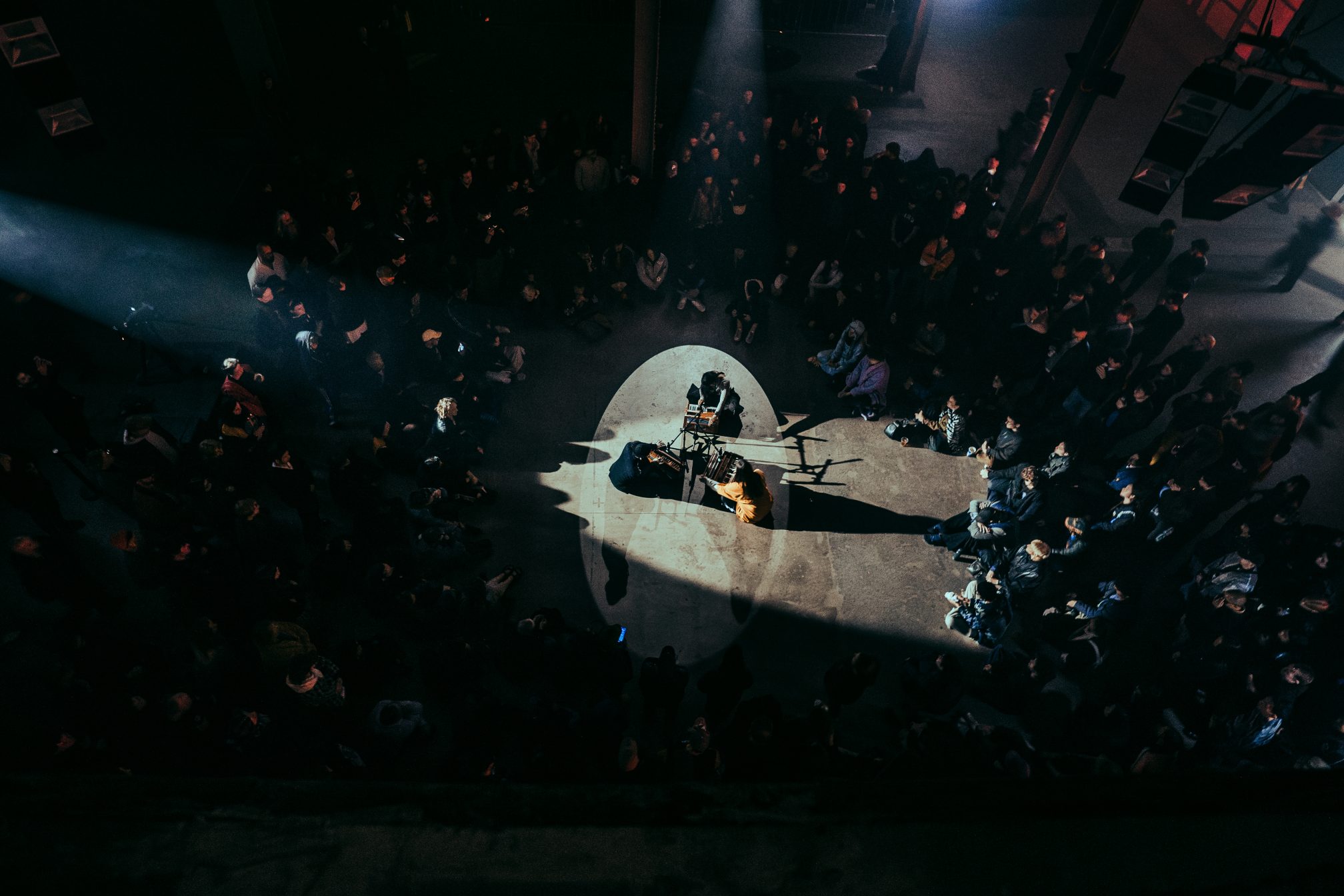
Soft Centre described this year’s event as “a cross-city cornucopia of cutting-edge sound, new media art and experimental performance.” When trying to explain it to people, including friends, family, and peers who hadn’t yet heard of it, I described it as “a pop-up art gallery with lots of music and conversations.”
In preparing for this year’s edition, the first one where I was set to review, there was a palpable feeling of trepidation as I planned my weekend. Spanning four days, five venues and six different events, this was by far the most ambitious that Soft Centre had ever been. Its ambition was, in my mind, something to be adequately prepared for, and yet important not to muse on too heavily. I would need to let the Soft Centre happen to me, rather than meticulously planning and preparing for everything, I thought.
This same mindset, entertainingly, is what had left me entirely unprepared for its first iteration, many years prior. Soft Centre’s founders, Thorsten Hertog, Jemma Cole and Sam Whiteside, had all been deeply involved in a DIY renaissance which gripped their home of Gadigal Land/Sydney immediately following 2014’s notorious lockout laws.
These events were a clear precursor to the boundaries between art, music, and audience participation that Soft Centre would eventually seek to destroy almost entirely. At a 2016 OKRA event, held in the backstreets of Gadigal Land, a large-scale installation lined the warehouse walls, comprising a variety of giant plastic liquid sacks filled to the brim with the bodily fluids of past parties. It may come as no surprise that one of them popped, spilling its contents across the warehouse floor and to the mixed concern of those in attendance.
The chaos of events like that one, and other similar DIY events happening at a similar time, led me to believe that Soft Centre’s first iteration, held at Casula Powerhouse in 2017, would be a similarly hedonistic affair. It was only once I arrived that I realised I couldn’t have been more wrong, and that this was not just a party.
With each year I attended, I felt myself becoming more aware of where Soft Centre sat in its city’s ecosystem. It's taken them to a lot of places, including their original home of Casula Powerhouse, Carriageworks, the Sydney Opera House, Naarm’s Trades Hall, as well as collaborations with the likes of CTM Festival, MONA, Dark MOFO, Svbkvlt (China), FIBER (Amsterdam), Now Or Never and others.
This year, Soft Centre’s growing reputation was made perhaps most obvious by its partnership with London-originating radio platform NTS. NTS, first launched in 2011, has in recent years invested time into growing its Australian presence, including throwing its own events in partnership with Naarm/Melbourne-based promoter Crown Ruler, and now with NTS-associated artists performing at Soft Centre and the festival receiving its own residency on the platform.
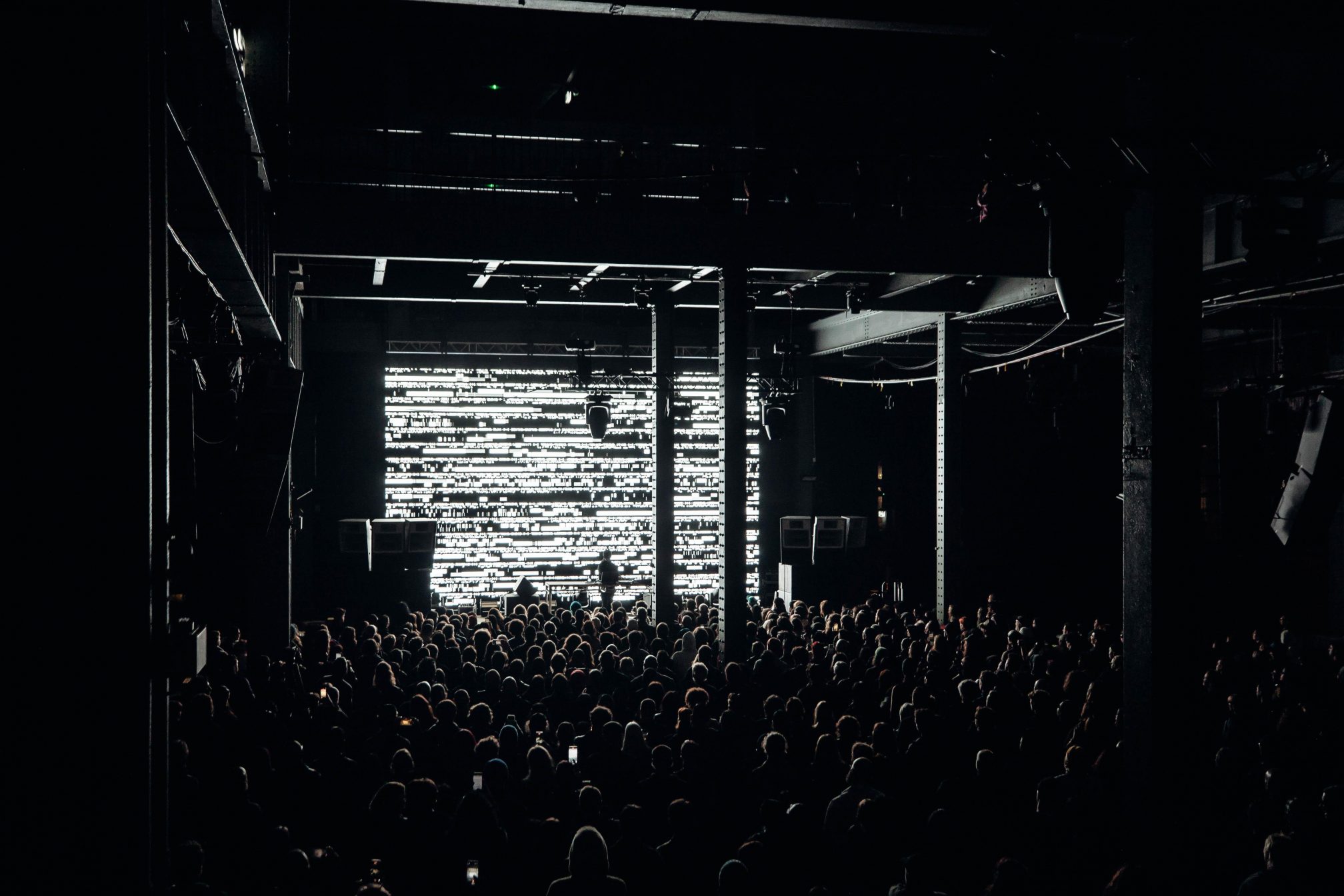
This partnership, though incredibly exciting, comes at a time when the globalisation of music brands has never been under more scrutiny. In May of this year, Universal Music Group deepened its relationship with the platform, now holding a 49% stake. Outside of the reputed impact of major labels on the broader music ecosystem, it’d be remiss not to mention that its CEO has reportedly regularly funded Zionist projects. Much like the growing calls to boycott the likes of Spotify over its CEO Daniel Ek’s own investments, NTS has not escaped similar calls in more politically vocal musical circles.
One of Soft Centre’s founders, Thorsten Hertog, addressed this point in an interview with Mixmag ANZ, held in the week before this year’s Soft Centre.
“Even government funding, which is the backbone of so much of Australia’s arts ecology and the only reason we can do this thing at scale, comes from complex political and economic structures that can be contested. If we held out for absolute purity, even at this many degrees of separation from the CEO in question, very little cultural work would be possible,” he shared. “Instead, we focus on the intentions behind how resources are used, and whether a partnership enables us to create meaningful opportunities for artists and communities in line with our values.”
Read: "Don't wade, plunge" into Soft Centre 2025
With that in mind, among its many partnerships, it’s clear that while the organisation team behind Soft Centre has grown, and its opportunities have only expanded, the mantra behind the festival has remained unchanged.
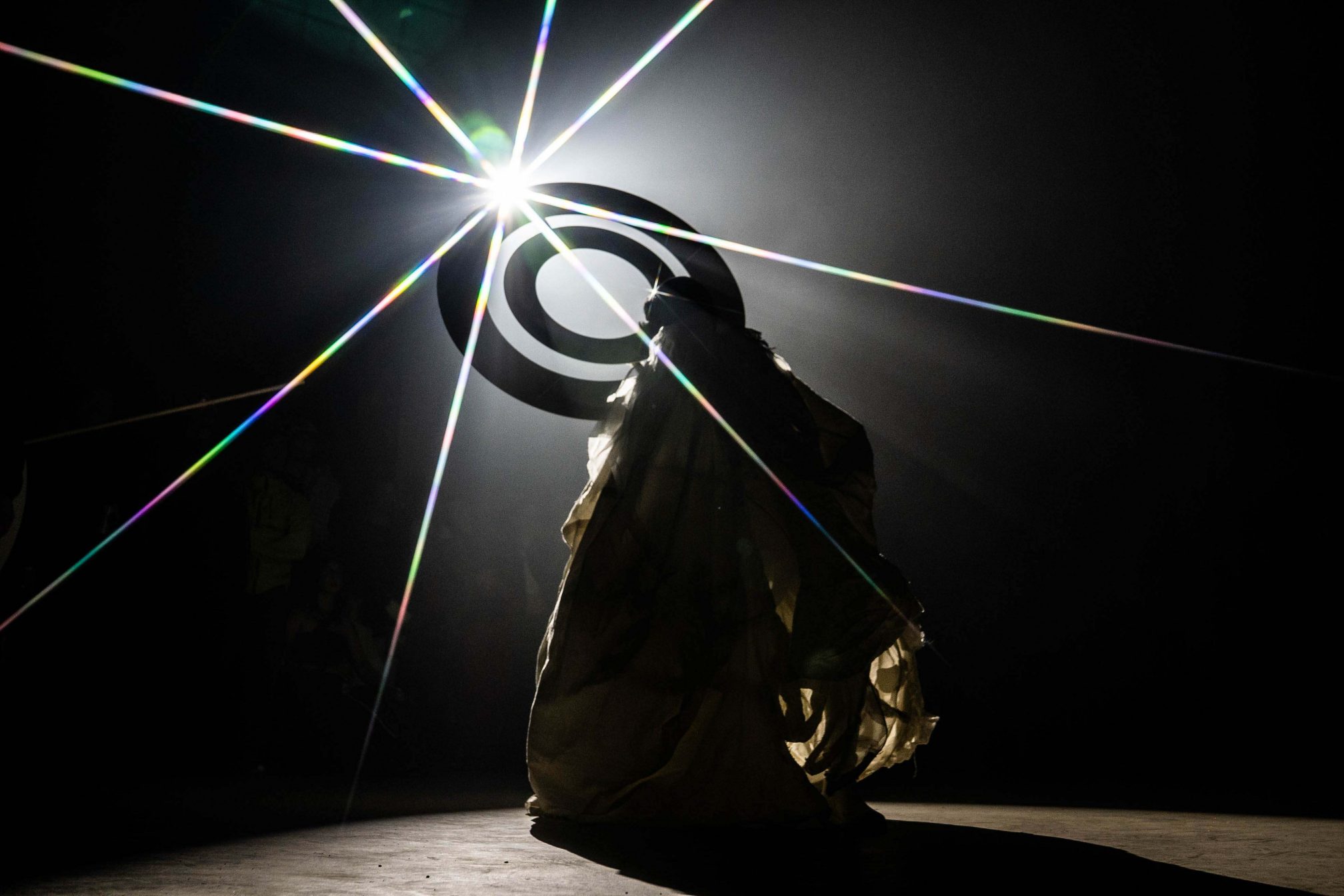
What had changed, most crucially, in the time since 2017 was not Soft Centre, but its city.
At the time it was first held, a sense of impermanence pervaded much of Sydney’s more DIY communities. The lockout laws had demonstrated very harshly that nightlife was a privilege that many had taken for granted, and a series of raids on public events and DIY spaces in the years following drove this point home even further.
We were lucky to be a part of this scene, to hear this music, and to watch culture evolve in real time; we thought to ourselves. For Soft Centre to exist at this time, there was a mutual understanding that this culture might be temporary.
However, electronic music and the culture surrounding it have only continued to expand. The feeling of impermanence that made many spaces feel special has been forced into a normality, turning what were once incredibly experimental spaces into a ‘scene’.
And yet Soft Centre remains timeless. Its conversations, sound, space and the directions it shines its light have never been more critical.
We have never needed a challenge more.
Commitment to challenge ran through much of Soft Centre’s 2025 programming. From Workshop, Discourse and Cinema, punters were provided with an opportunity to, as founder Thorsten Hertog shared, “don’t wade, plunge” into what it offered.
For the Workshop and Discourse program, Soft Centre had programmed a variety of conversations, panel talks, and short film screenings designed to pose questions about not only the state of music but also how we interact with sound, the brands behind it, and people at odds with the structures those brands rely on.
Tina Stefanou’s film ‘You Can’t See Speed’ explored the story of blind motorbike rider and mechanic Matthew Cassar, a surrealist discussion around what adrenaline, speed and danger are meant to be when they aren’t visibly seen. This flowed perfectly into Andrew Brooks’ deep dive into noise as a categorisation of the ‘lesser’, explaining at length the need to recontextualise our idea of what ‘noise’ truly is, with particular reference to protest and the sound of revolution.
The Penrith Miers Archive, a collaborative effort between Yuin archivist Madika Penrith and Batemans Bay ethnomusicologist Sam Miers, has officially launched the first instalment of their compilation of music and sound from across Yuin Country. This panel’s focus on the archival of crucial cultural works, particularly those pertaining to First Nations stories and histories, clearly resonated with all in attendance, with my writing of this review and its archival nature not being lost on me either.
Kate McGuiness’ short film ‘I Like Long Walks On Parramatta Road’ presented an alternative and crucially important shift in tone for Soft Centre’s offerings, humour. The artist, seeking to end her life, takes one final walk along one of Sydney’s less liked motorways, stopping in at every shop she can along the way. It served, particularly with Sydney as its backdrop, as a reminder that though at odds with much of what the city provides and stands for, there is still beauty and humour to be noticed in the everyday, and the contrast it gives to what Soft Centre is.
Liz Pelly, author of the veil-lifting book ‘Mood Machine’, spoke at length about streaming service Spotify’s questionable business practices and focus on the hoarding and sale of customer data. At a time when Spotify CEO Daniel Ek has invested over a billion Australian dollars into an AI-military-tech startup, this portion of the day felt more topical than almost any other. The enthusiasm of the crowd for Pelly’s points was palpable, with a horde of questions needing to be cut off to make room for the remainder of the programming.
Kristi Monfries of Liquid Architecture presented the day’s final panel, hosted by Alexandra Crosby and featuring Vietnamese musician Zach Sch and Naarm/Melbourne producer Kuya Neil. The talk focused on the upholding and fostering of DIY communities in an increasingly globalised world, with particular emphasis on the experiences of all panellists in their home countries across South East Asia.
From there, it was a quick dash to Para.Cine, Soft Centre’s movie night, is held at the iconic Chauvel Cinema. NYC-based digital performance studio Team Rolfes began the evening with a return to Soft Centre’s technologically experimental roots. “A misfit crew of avatar jockeys struggles to keep their ailing AV exoskeleton humming as they sprint towards the competition of a lifetime.” ‘The Mustang Speedrun’ was half VR, half puppetry, following two brothers in a distant and brutal future, soundtracked, voiced and lit to the standard of a modern AAA video game. Were it not for the two actors being visibly and hilariously active on the stage in front, riding a rig attached to a hand trolley, you may have forgotten you were watching anything other than video game footage.
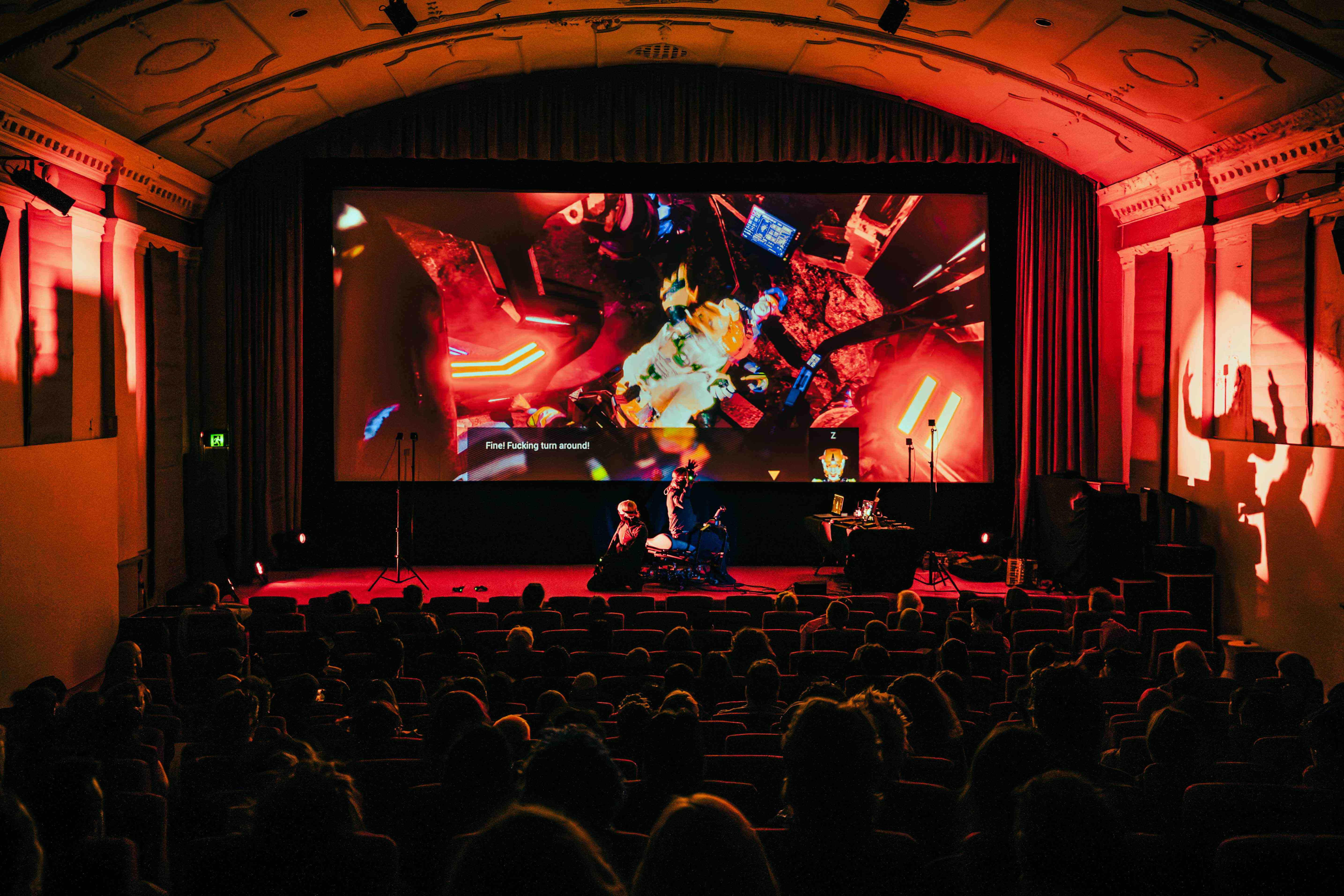
While Workshop, Discourse and Para.Cine saw Soft Centre spreading its wings across the city, the clear and comfortable star of this year’s edition was none other than White Bay Power Station. Held initially at a power station, the return to such a location was more than just a coincidence. White Bay’s Manager for Arts, Culture and Creative Industries, Craig Donarski, was the ‘in’ for Soft Centre at Casula all those years ago.
White Bay has, to those who have lived or grown up on Gadigal Land, remained a huge question mark sitting over their city’s harbour. The space officially closed its doors on Christmas Day, 1983, and was later sold for repurposing in 2000. From there, talks arose about it becoming Google’s headquarters, and unsurprisingly, luxury apartments. In 2022, however, much to the relief of many, it began its transformation into an arts and culture centre, with the Biennale of Sydney scheduled to take place in 2024.
With only a handful of large-scale events held there thus far, Soft Centre was the first time that many of its guests had stepped through its doors.
The site is a space that needs to be seen to be believed. There truly isn’t anything like it in the rest of Sydney, let alone Australia.
Huge halls, winding staircases, balconies, relics of industry and decades past, and countless windows to showcase it all, there really could be no better place for an event like Soft Centre. Across five stages, the festival’s flagship event on Saturday was an overwhelming hotbed of opportunities. While the Discourse and Para.Cine programme had allowed guests to, for the most part, take a passenger role; the Festival itself required you to make choices.
However, while 2017 had intimidated me by what was on show, this year I knew to let my intuition take me wherever I pleased. The trust to be challenged is the trust that Soft Centre has earned, and to think too critically about where to be takes an all-important element of possibility out of the equation.
Musically, there’s so much to see that one might find at another ‘festival’ of Soft Centre’s calibre. From Dutch producer Upsammy’s partially ambient live set to start the day, local artists Con Pani x Paramt, SOVBLKPSSY & Rydeen, Vv Pete and EXCITED STATE !!!, or the man credited with inventing dubstep, Coki, one could enjoy Soft Centre 2025 while staying entirely in a lane relatively familiar to them, while still having the boundaries of genres pushed.
It’s the moments in between this programming where Soft Centre truly shone this year, however. Jumping from stage to stage, from lighting installation and visual art to the expansive space within the power station itself, was an encouraged and straightforward exercise. What would the Boiler House, Soft Centre’s arguable ‘main stage’, look like from the back, the side, or from a balcony high above it? What of the vast, 90-degree beam of light installed in its Turbine South, or the brutal smokestacks just outside its halls? These were questions to be asked repeatedly throughout the day, each time presenting a different answer and a different act to assist in changing the way each space operated.
Performer Fei Gao would reveal themselves in the crowd at one moment, only for the same space to then play host to CONTENT.NET: The Musical, a 90-minute dive into the fictionalised sell-out journey of Stinga, Meanjin-turned-Naarm-based rappers, written by Kuya Neil and Passive Kneeling, comfortably taking aim at Boiler Room and its owner KKR. Once the curtains closed on the musical, one might step outside, only to be met by Young Boy Dancing Group, a Chinese-originating dance group known for their raw, chaotic and confrontational performances. A single string of light illuminating a performance equal parts ritual and rave, where one couldn’t be sure of where the string of performers ended and the crowd began over its two-hour runtime.
Across the entire day and into the evening, it became abundantly clear that while many of Soft Centre’s acts didn’t share the same musical palette, they had something more profound in common: an unspoken connection to open-mindedness in the face of normalcy and commercialisation. There was something uniquely human and entirely inhuman about what was on show, which became further emphasised by two bookings at opposite ends of electronic music’s spectrum.
The first of these was C Bong Sae, a cult figure in Seoul’s underground club scene. Stepping to the stage in an oversized sports jersey and Ash Ketchum-inspired hat cocked at near gravity-defying levels, no amount of judging a book by its cover could prepare the audience, nor me, for what they were about to say. C Bong Sae’s erratic, head-jerking DJ style saw a near-brutal assault by a mixture of Asian Hard Dance regularly tempo-shifted to different speeds and pitches, mixed with traditional Korean folk and hip hop acapellas. At a time when DJing has, to many, been described as an ‘art’, C Bong Sae threw that concept entirely out the window at a time when that has never been more necessary.
Mixing with what appeared to be a pair of corded Apple headphones (one ear only), regularly miming along to lyrics in a contorted fashion and giving ‘hands in the ear’ treatment to tracks never heard in such a way before, it was an experience to say the very least.
What followed was perhaps Soft Centre’s most emotional and meaningful set of the day, performed by mother/daughter duo Queen Asher and Rehema Tajiri. Playing a high-energy set of Singeli, a genre that can reach speeds of 300 BPM, and with Queen Asher as MC, the Tanzanian duo gave the audience a chance to throw their hands in the air to a feeling of familial love at blistering speed.
Soft Centre’s Late Night offering, also known as its afterparty, brought the festival back into a familiar space: a DIY location featuring a variety of local and international talent across multiple DJ sets. Aquenta, Spidercunt (MEGANESIA’s Spiderdog and DJ Dog Cunt), iconic 90’s DJ Nick Skitz and a more high-energy, drum-focused set by Upsammy were of a more expected and yet all the more closure-providing zone.
Those who came to the afterparty without the context of the day would have no doubt found Nick Skitz’s excited focus on brostep, happy hardcore and Soulja Boy to be curious, given the environment.
While Soft Centre could have ended in the early hours of Sunday morning, the weekend was not yet over, with its Closing Concert providing an opportunity to bask in its main room for a final time. Aarti Jadu Ensemble’s ‘SICFWYLF’, NTS resident Malibu and Japanese visual and sound artist Ryoji Ikeda provided three very different performances on Sunday evening.
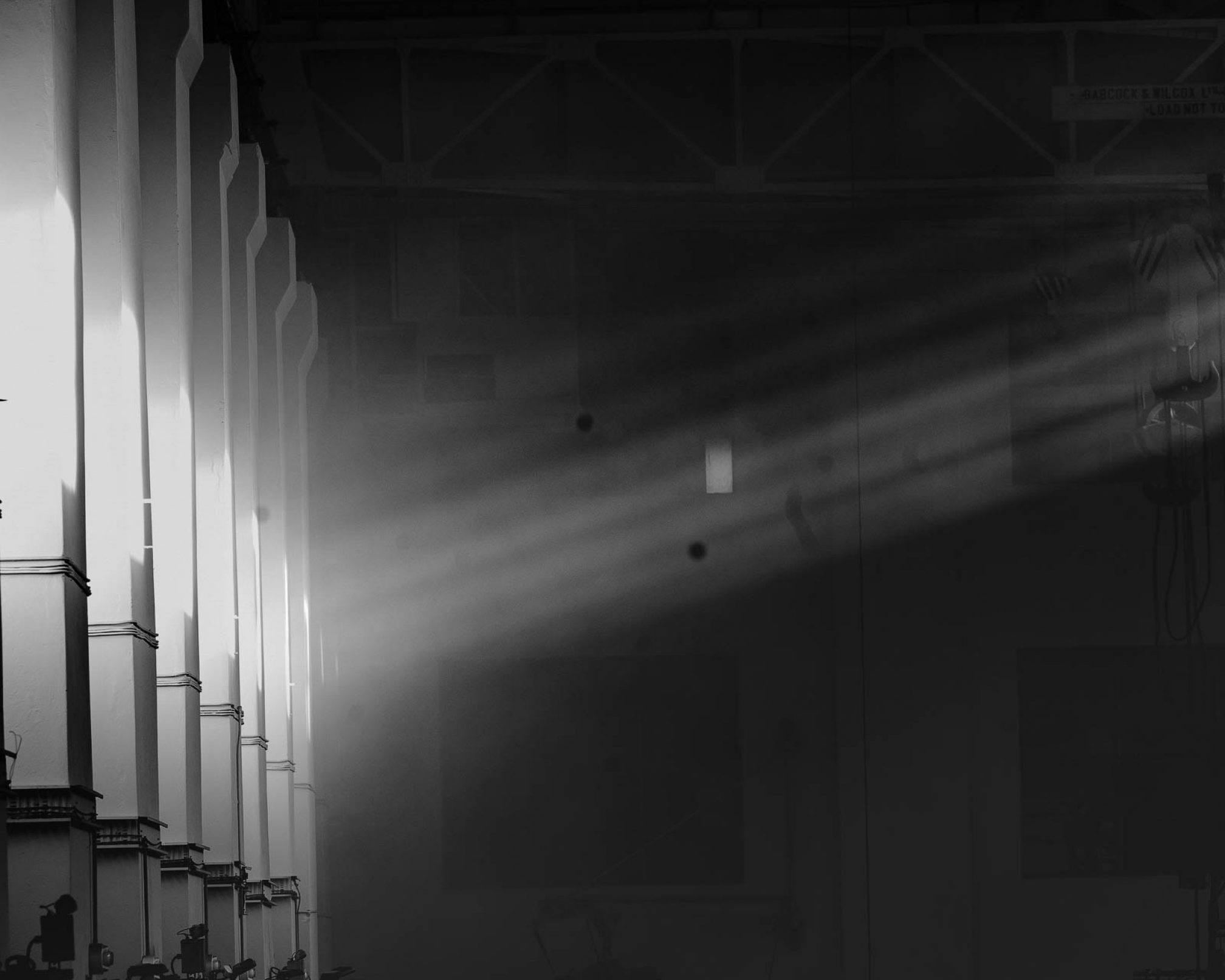
From the line-blurring instrumentation of ‘SICFWYLF’, to the hauntingly beautiful sounds of Malibu and her much-anticipated new record, there was a calmness that came over the room, now captivated by a single stage in one shared experience.
In normal circumstances, the close of Malibu’s live set would have provided a feeling of closure that many ‘closing track’ moments at other festivals pursue. Emotionally and physically fragile, these moments act as a bittersweet reminder for us all to reflect on, and much like an expected encore, a tradition we all willingly participate in to soothe the pain of an experience coming to an end.
However, in true Soft Centre fashion, this was not to be the end of it.
Ryoji Ikeda, giving a rare performance, transformed raw sonic data into a mind-altering sensory immersion, blasting the audience with an orgy of strobing white numbers, patterns and letters matched in intensity by Ikeda’s unique brand of broken beats and sub-housed electro, seemingly fit to test sound systems, or whether they still work.
“If only I’d remembered my eyeplugs”, a friend mused to me as we stood, mouths agape at Ikeda’s digital scribblings. A series of hollers and whoops reacted to the word “beep”, said not made, rang out over a distorted sine wave. The performance, entirely black and white, came together and made sense of Ikeda’s notes at its close, with RGB finally making an appearance, alongside data on the earth’s precipitation, heat, migration patterns and much more, before blasting the audience with a hypercut of various exploding suns.
Again, not the end.
Ikeda resurfaced moments later only to once again fire at the audience, this time for only a minute or so, with almost every noise and colour we’d not heard at his performance thus far.
It felt all too fitting, given how much ground the weekend had covered thus far.
With that, it was over.
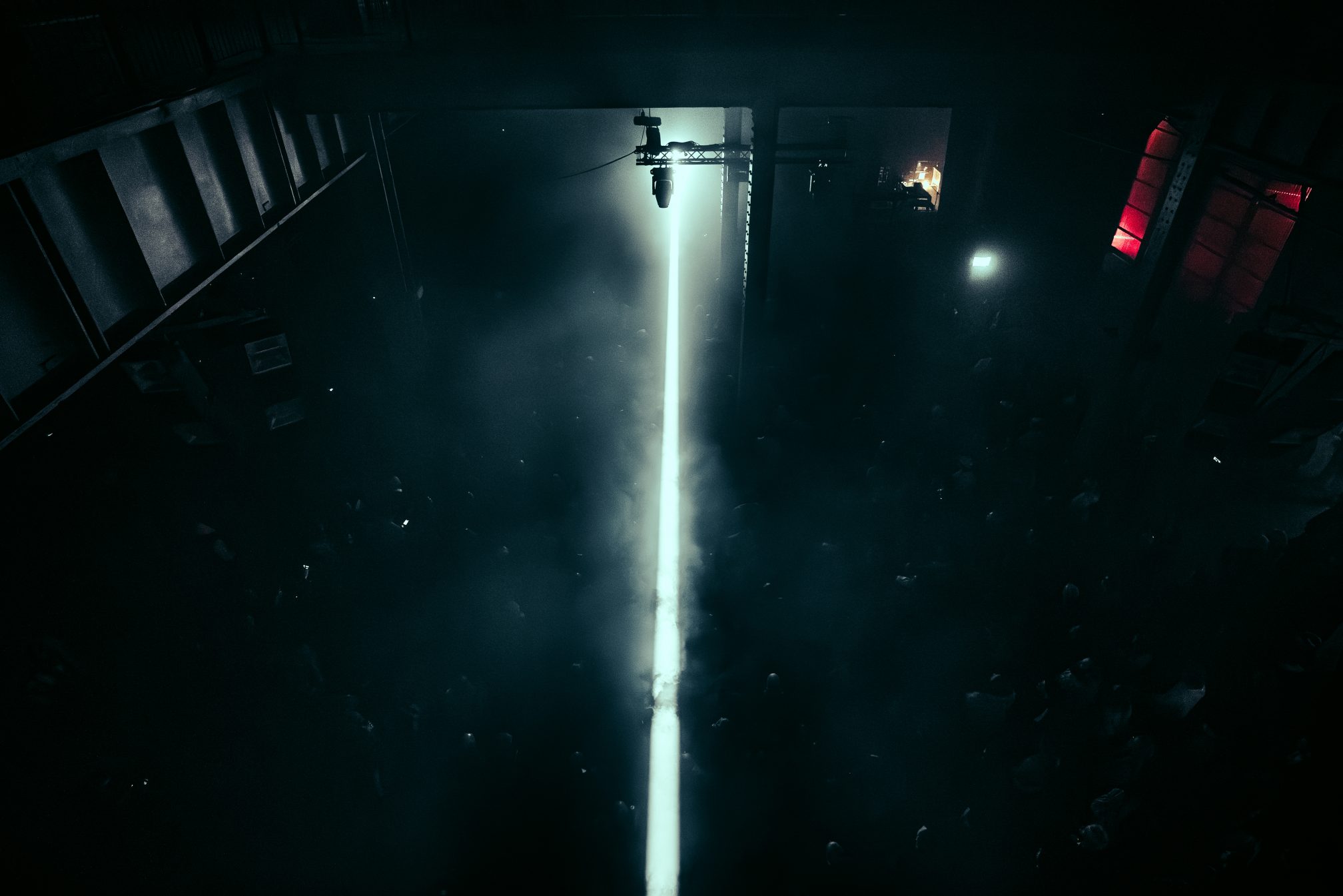
I’m not one for trying to rank experiences. I’ll often go to restaurants with friends who like to use them as places to discuss other meals. Family holidays will often feature a “top five” conversation before the holiday is even over. I don’t know what my top five albums of all time are.
It’s hard for me, however, not to give this experience a perfect score. Perhaps for someone visiting from interstate, overseas or another world, Soft Centre 2025 may not have been everything they wanted. However, much like Nick Skitz’s playing of Skrillex’s remix of Benny Benassi’s cult classic ‘Cinema’ at Soft Centre’s Late Night offering, context feels like half of this conversation.
In a city that for so long felt like the underdog, Soft Centre stood at its furthest reaches as an experimental equal. The temporal nature of the city’s nightlife, its festivals, and music culture had, in its own way, set many events at the same standing. This year, however, in a climate of music, festivals and cultural experiences increasingly overrun by a mediocre majority, Soft Centre said more than it ever has.
With the backing of local government, use of a heritage-listed building, and its most ambitious program to date, the festival said a lot about where we are, and even more about where we’re going.
-
Jack Colquhoun is Mixmag ANZ's Managing Editor, find him on Instagram.


